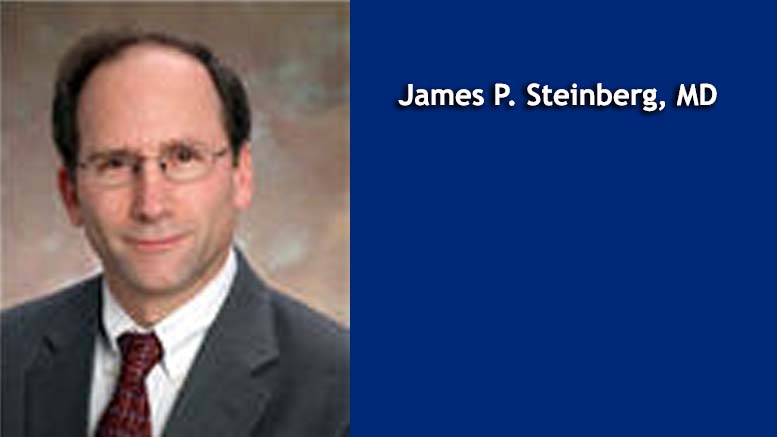The Paul B. Beeson, MD Faculty Recognition Award was established in honor of Dr. Paul Beeson’s outstanding contributions to the developing field of infectious diseases and as chair of the Emory University Department of Medicine from 1946 to 1952.
Each year, the Beeson Award is given to a Division of Infectious Diseases faculty member whose influence and reputation are exceptional—nationally and internationally—in education, service, and/or scholarship.
James P. Steinberg, MD was presented the 2015 Beeson Award for serving 26 years on the Division of Infectious Diseases faculty, with contributions to patient care, medical education, hospital epidemiology, quality, and hospital administration.
Dr. Steinberg is currently a professor of medicine in the Division of Infectious Diseases, chief medical officer at Emory University Hospital Midtown, and associate dean of clinical services at Emory University Hospital Midtown.
Dr. Steinberg’s research interests include antibiotic resistance and the epidemiology and prevention of health-care-associated infections, including surgical-site infections and intravascular device-related infections.
Previous winners
- 2006: Jeffrey Lennox, MD
- 2007: David Rimland, MD
- 2008: Henry M. Blumberg, MD
- 2009: Monica M. Farley, MD
- 2010: David S. Stephens, MD
- 2013: Carlos del Río, MD
- 2014: John E. McGowan, Jr., MD
More about Dr. Beeson
Paul Beeson, MD arrived at Emory in 1942, when infectious diseases was first emerging as a recognized specialty, blood transfusions were a new procedure, and penicillin was not yet readily available. Few faculty were engaged in full-time research, and The National Institutes of Health (NIH) were mainly focused on war-related treatments.
Dr. Beeson revolutionized the Emory University Department of Medicine with his high standards of medical education, patient care, and focus on research. He served as chair of the department from 1946 to 1952 and was a pioneer in establishing Emory as the top research, teaching, and clinical institution we know today.

